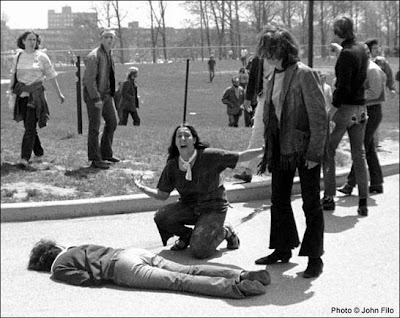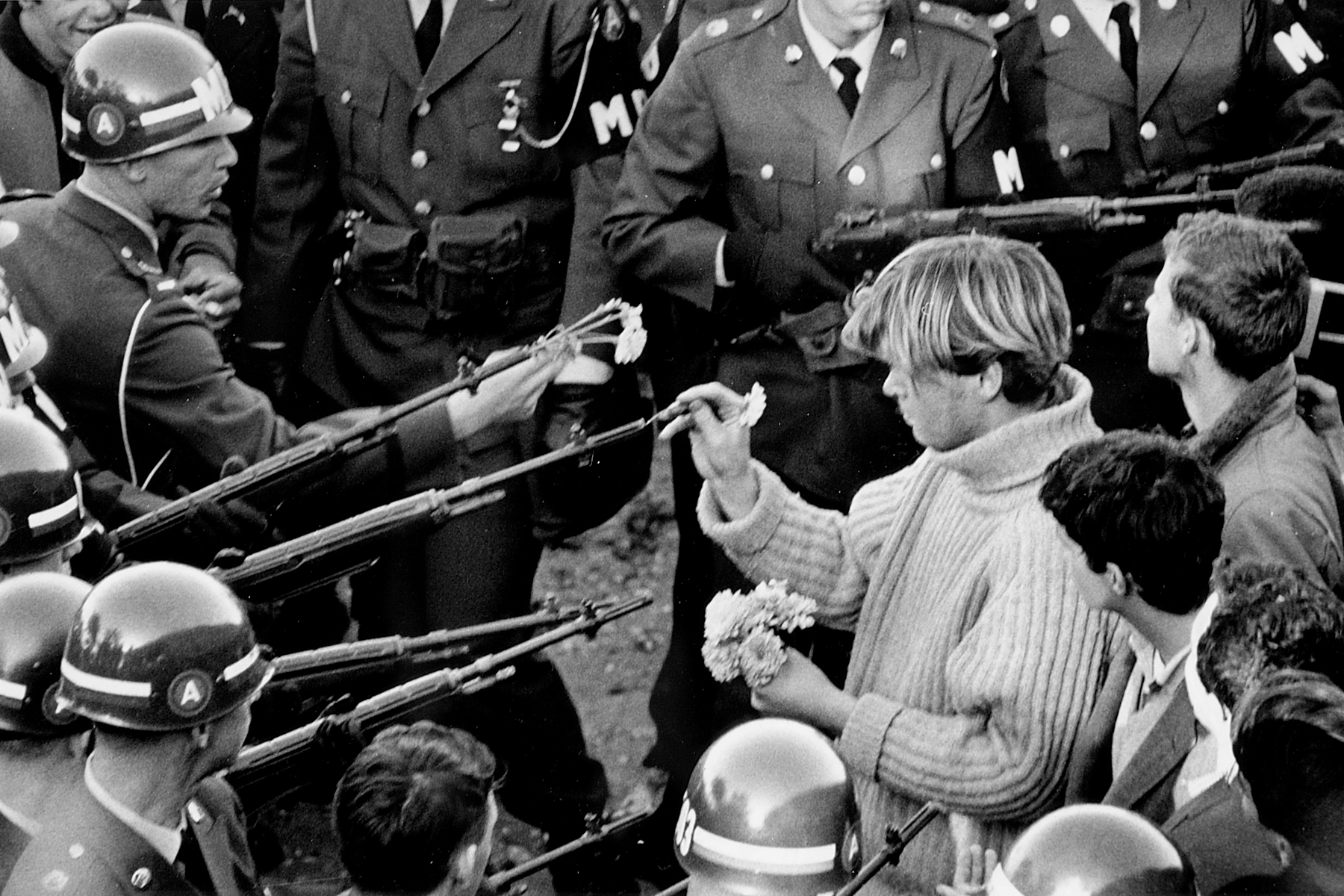sandinista wrote:Seraph wrote:Gawdzilla wrote:Warren Dew wrote:Seraph wrote:People who failed to watch what they said:



All from the U.S.
All from the same event. Notable for its exceptional character.
And that's been pretty much my point when I said: "Meanwhile I'll just reiterate that life in so-called capitalist democracies is
somewhat less oppressive than in so-called communist countries, especially for those of us who have participated in mass protests. Our
chances of being rolled over by tanks, machine gunned or spending many years in prisons as a result of such participation are only
a tiny fraction in the former when compared to the latter." I also mentioned the role of the FBI when it acted as the US's political police force. You see, I am not good at perceiving the world in terms of black and white.
But, you are perceiving it as black and white. Someone states that capitalist countries indeed do not have the "freedom" espoused by thier leaders and you fire back with, "oh, well..it was worse in some soviet bloc countries". One of the main issues here is not the length of prison time, or the beatings, it's the arrest record. In capitalist countries an arrest record can be a virtual life sentence when it comes to finding employment, or traveling, or doing just about anything. That is the threat western "democracies" place on protests. "Oh ya...go ahead and protest, but you will be arrested and you will be stamped with a criminal record so think twice before speaking out".
I think, actually, he stated it not in black-and-white terms, but in relative terms. It seems you, on the other hand, are stating the issue in black and white terms because you seem to espouse the view that ANY limitation on freedom is equivalent to any other limitation on freedom. The point he was making is that in the US and other western countries, the amount of civil liberty is vastly greater than in real-life communist and totalitarian nations. The fact that we had a Kent State here in the US speaks to a failure of the system, a failure of leadership and training in the national guard, and not a purposeful oppression. The President didn't order the shooting at Kent State, a political leader did not order it - it was a situation that got out of control, and it was national guardsman that fired, and it
I don't see your statements regarding arrests and protests as being in accord with reality, at least not in the US. Protests and mass protests occur all the time and the vast majority of people never get arrested. Protests in a town, however, are subject to reasonable time,place and manner restrictions - you can't go to a private person's house and scream at them all night with bullhorns - you can't break in the barber shop's windows because you don't like GATT or NAFTA - but, you can stand on a soapbox in a public place and state your case - you can march - you can carry signs and sing songs. And, you won't get arrested, normally. And, if you do get arrested, there are legal protections for you, and redress for wrongful arrests is available. Are there injustices - Yes, by all means. Does that mean that it's as bad here in the US as in China? Only black-and-white thinking could make that equivalence.
I don't see anyone claiming that the US is an anarchic society wherein people are perfectly free to do as they please whenever they like. We're not. We have a republican government of imperfect elected officials who govern by making laws which limit or regulate people's behavior - fundamental liberties are protected by a Constitution and a system of checks and balances all of which work imperfectly. I can't see as you're offering anything better, and if we look to China and Iran and North Korea and Venezuela and Cuba and Algeria and Libya and Saudi Arabia and Yemen and Syria, we see far worse.
As for Kent State - the details are important there. Eight of the guardsmen there were indicted by a grand jury, and they all claimed self-defense. One of them, Larry Shafer, specifically stated that "I never heard any command to fire. That's all I can say on that." Based on the self-defense claims, the federal judge dismissed the charges against the guardsmen, so presumably there was a basis to the claim of self-defense raising a reasonable doubt as to the crimes charged. Civil actions were also attempted against the guardsmen, the State of Ohio, and the president of Kent State. The federal court civil action for wrongful death and injury, brought by the victims and their families against Governor Rhodes, the President of Kent State, and the National Guardsmen, resulted in unanimous verdicts for all defendants on all claims after an eleven week trial. So, apparently, a jury couldn't even be convinced that it was "more probable than not" that the guardsmen et al were responsible for wrongful death.
In 2010, there was an audio analysis done of a tape found of the incident —which concluded the guards were ordered to fire. It is possible that this will lead to further legal action. On May 10, Alan Canfora, who with others is or was considering launching new civil actions, said he will ask United States Attorney General Eric Holder and Ohio Attorney General Richard Cordray to review the tape. So, stay tuned.
The only equipment the guardsmen had to disperse demonstrators that day were M1 Garand rifles loaded with .30-06 FMJ ammunition, 12 Ga. pump shotguns, and bayonets, and CS gas grenades. In the years that followed, the U.S. Army began developing less lethal means of dispersing demonstrators (such as rubber bullets), and changed its crowd control and riot tactics to attempt to avoid casualties amongst the demonstrators. Many of the crowd-control changes brought on by the Kent State events are used today by police and military forces in the United States when facing similar situations, such as the 1992 Los Angeles Riots and civil disorder during the aftermath of Hurricane Katrina in 2005. We do need to be mindful that there ARE legitimate reasons to control crowds - we have laws in this country - and some of those laws restrict the use of violence, disruptive noise, blocking traffic, damaging property, etc. There is danger in a riotous crowd - danger to innocent people who live and work where the riotous crowd seeks to do its thing - if I run a business at Main and Maple street, I don't think you have a right to smash my windows, no matter how pissed off you are about GATT or NAFTA or the G20 - the people who live there and work there have a right to not have the sidewalks blocked - the protesters have a right to be there, and those who aren't protesting also have a right to do their thing and live their lives too. It's the government's job to maintain order in accordance with the law and protect innocent people from harm, and at the same time allow and protect protesters and speakers in the public square. Sometimes, this can be difficult to do effectively or fairly. That is NOT to say that there is never government overreaching and injustice - there is - there absolutely is.



